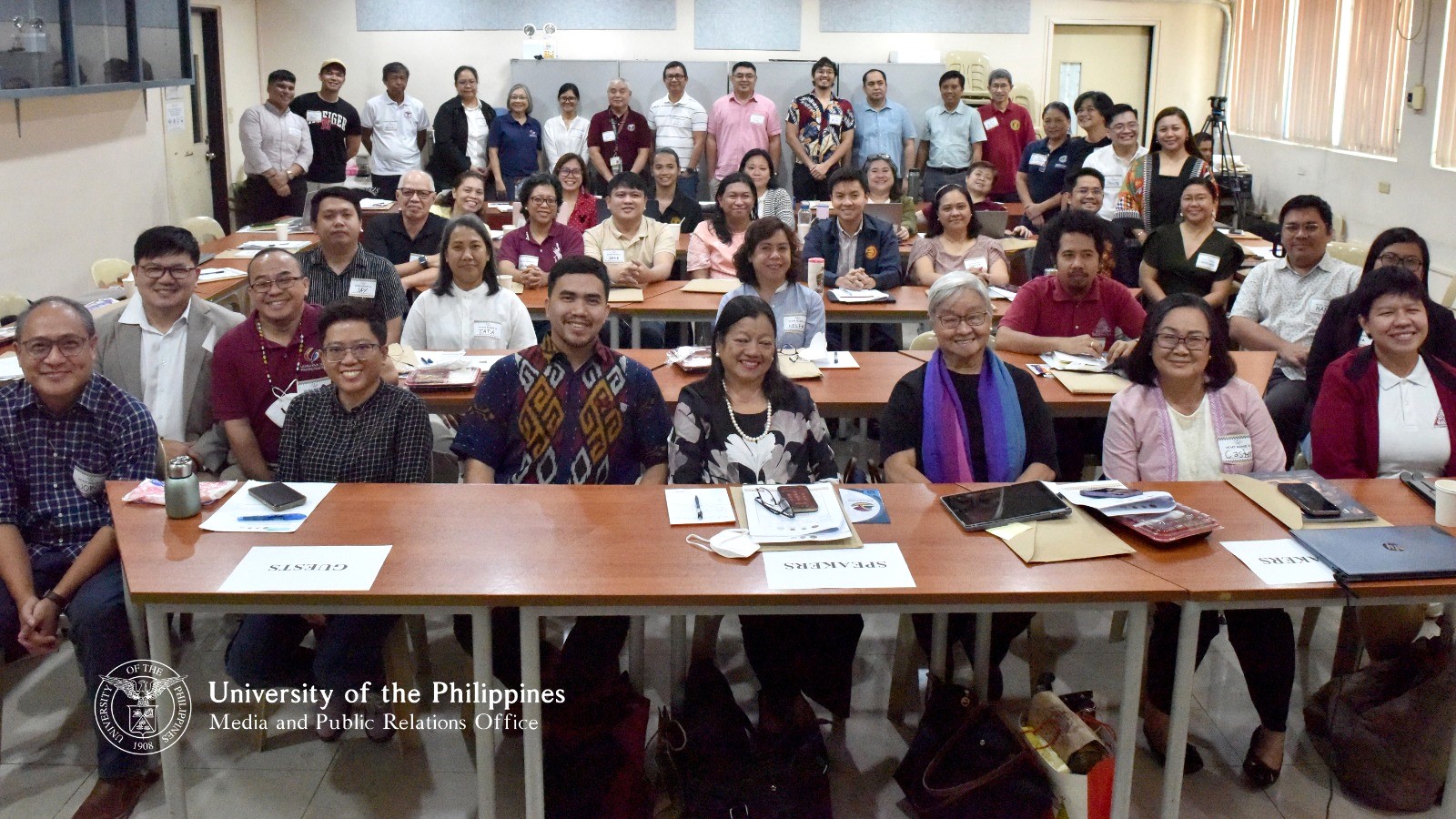The University administration must place more value on a UP faculty member’s public service as part of his/her academic work. This was the urgent call made by the participants at the two-day 2024 UP Public Service Summit.
Held in UP Diliman from May 30 to 31, the summit was organized by the UP Office of the Faculty Regent (OFR), All UP Academic Employees Union, and the Padayon Public Service Office, in partnership with the Office of the President, Office of the Vice President for Academic Affairs, and the Office of the Vice President for Public Affairs.

Below is a news story about the event prepared by Kenneth Roland Guda of the OFR and posted on the Opisina ng Faculty Regent Facebook page:
Place greater value in public service, summit participants urge UP admin
By Kenneth Roland Guda
Participants of the 2024 UP Public Service Summit from May 30 to 31 at the Vidal Tan Hall, University of the Philippines Diliman urged the university administration to put more value on public service as part of faculty members’ academic work.
This entails, among others: increasing the percentage of public service in UP System programs; institutionalizing service-learning and community engagement; incentivizing faculty to perform public service functions; and increasing the percentage of public service in faculty merit promotion.
The summit participants also proposed the establishment of a Public Service Productivity Award, as well as a system-based public service grant and mobilization fund, and institutionalization of public service load credit.
The summit’s plenary speakers, meanwhile, also urged UP faculty members and participants of the summit to merge public service with the faculty’s other academic functions like research and teaching, thus enhancing and giving inspiration to the latter.
Judy Taguiwalo, PhD, former Department of Social Welfare and Development secretary and former Faculty Regent, for instance, pointed out UP’s support for Lumad struggle for justice and protection of their ancestral land as an example of the university’s commitment to social change.
“Iyong pagbibigay ng UP ng espasyo, halimbawa, sa mga Lumad—hindi lang iyon usapin ng welfare. Ang scholarship natin maaaring tumungo sa advocacy. And advocacy can lead to scholarship. It can also become subject of our scholarship. Iyon ang gusto natin: To encourage engagement with the communities not just because it is public service but it can also lead to teaching, research, and scholarship,” she said.
Erlinda Palaganas, PhD, president of the Cordillera Center for Health and Social Concerns, former president of the Philippine Nurses Association, as well as former director of the Institute of Management in UP Baguio, urged the faculty participants to fuse their research work with advocacy for the marginalized communities.
“Do research that has something to do with the masses, with the people. At iyong passion mo for service will also reflect in your teaching,” Palanagas added.
Dr. Edelina Dela Paz, president of Health Action for Human Rights and former division head of Urban Community Based Health Program of the Department of Family and Community Medicine of UP Manila, shared that in her experience, medical students highly appreciate it when they engage in community work.
“Teaching and supervising medical students in community health workers’ training—isa ito sa mga binabanggit ng mga estudyante na highlight ng kanilang medical education. Kaya lang sinasabi nila na pasensiya na po, pagdating sa hospitals, nao-overwhelm kami ng hospital-centric activities, nakakalimutan ang community-based activities. Kaya dapat ’yong faculty ng medical sciences ay kasama sa pagtataguyod ng (community-based) orientation,” she said.
For her part, Cherish Aileen Brillon, PhD, director of UP Padayon Public Service Office, said that UP placing greater emphasis on public service is in line with the UP Charter of 2008.
“The UP Charter of 2008 mandates that UP as a national university be a public service university by providing various forms of community, public and volunteer service, as well as scholarly and technical assistance to the government, the private sector, and civil society,” she said.
Faculty Regent Carl Marc Ramota also urged the faculty participants to take part in social movements beyond the university as part of their public service to the country.
“Public service must always be anchored on social justice, democracy, and genuine social change. This points to the emancipatory goal of public service that seeks not just to serve but to transform, to change society. As a national university, UP exists to serve the Filipino people, especially the marginalized and oppressed,” he said.
To serve the people means taking part in a broader struggle for social justice, democracy, and meaningful change, Ramota concluded.
